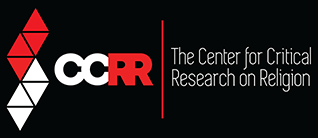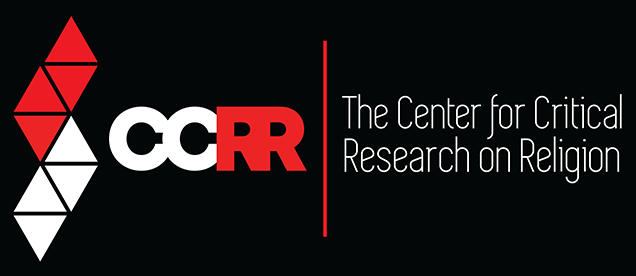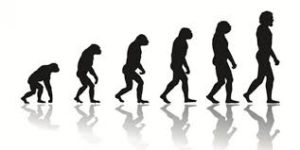Turkey is an interesting country, in every sense. To keep track of the political agenda is quite hard; having a comprehensive knowledge of it is nearly impossible. This is true not only for Turkey but, in the countries lacking pluralism, having a political agenda is becoming much more complex for the citizens. This is because public policies are produced in an anti-democratic environment. In such a reality, individuals must be well-organized and capable of engaging in a profound analyses of the issues. Such a necessity is essential for the politicians and bureaucrats who have the power to set the political agenda as well as for the reporters, scholars, representatives of civil society, etc. who try to focus on the issues, interpret the hot topics, produce alternative knowledge, and “enlighten” the public.
For a couple of weeks, we have been witnessing another debate showing the characteristics I have just mentioned. The debate is about the theory of evolution and its potential removal from high school curriculums. After the Ministry of National Education in Turkey announced a draft school curriculum excluding evolution theory from biology courses starting with the 2017-2018 school year, it has become a current issue and sparked a debate between proponents of the theory of evolution and creationists.
A program focusing on “current issues,” which was on a Turkish television channel last week, had six male professors and was hosted by an anchorwomen. The specialties of two of the professors were not relevant to the topic. The depreciatory attitude towards the theory of evolution for the sake of so-called religion, exemplified by the two professors during the program, is the crux of this essay.
This essay does not aim to force anyone to accept or reject evolution theory. Obviously, there is much evidence enabling the acceptance of the theory of evolution; this is why it is accepted as a “scientific” theory. However, I will not discuss this evidence. Instead, I aim to open evolution theory up for discussion because of the possibilities it creates for human thinking. I believe that we cannot precisely solve our political ecological problems without considering these new possibilities. Here, I use “political ecological problems” to frame all ecological problems caused by the political power through a specific way of thinking. (In one of my previous posts, I actually describe what political ecology stands for and for what it might also stand. The post can be read here.)
How can our political ecological problems be associated with evolution theory and the new possibilities of thinking the theory brings? Let me try to give an answer. Any individual, starting from her/his birth, tries to understand and interpret her/his “environment.” In her/his lifelong journey, this individual uses any given knowledge and sometimes produces new ones. Metaphysics, epistemology and ethics can be seen as three distinct areas of research dealing with different forms of the above-mentioned knowledge. In this respect, metaphysics mainly deals with the question “what is reality,” epistemology investigates “the knowledge” based on a specific reality, and ethics questions the principles and norms which have already been framed metaphysically and epistemologically. It can be argued that the metaphysical, epistemological, and ethical structures have eventually become inseparable parts of the individual’s character. Based on such a concern, education, on all levels, has much importance.
Today’s political ecological problems that we are struggling to overcome, seem to be related to how anthropogenic power is orienting itself in nature. Because the human being is at the center in such an orientation, the hegemonic understanding of monotheism is anthropocentric. At this point, it is not surprising to see a shift from anthropomorphism to anthropocentrism. Moreover, monotheism became hegemonic during a period in which patriarchy had already replaced matriarchy. The masculine individual placed himself at the top of a social hierarchy on earth. This hierarchy is also accepted for the heavens. Indeed, the theory of evolution is very risky because of its potential to lead us to question the above-mentioned hierarchy. The risk is related to the deconstruction of given metaphysical, epistemological, and ethical foundations. However, without taking such a risk, we cannot have a chance to get rid of power relations causing the current political ecological problems.
During a meeting in Oxford’s Museum of Natural History in 1860, Bishop Samuel Wilberforce asked Thomas Henry Huxley if he was related to monkeys on his grandmother’s or grandfather’s side. Huxley replied to the bishop’s sarcasm in an equally sarcastic way that “he would rather be related to an ape than to a human being who held back debate by making fun of scientific ideas” (Warburton, 2011: 145). British biologist Huxley, known for the term agnosticism, was one of the prominent followers of Darwin. Therefore, it would be meaningful to consider Huxley’s statement together with Darwin’s following statement:
“For my own part I would as soon be descended from that heroic little monkey, who braved his dreaded enemy in order to save the life of his keeper; or from that old baboon, who, descending from the mountains, carried away in triumph his young comrade from a crowd of astonished dogs—as from a savage who delights to torture his enemies, offers up bloody sacrifices, practices infanticide without remorse, treats his wives like slaves, knows no decency, and is haunted by the grossest superstitions” (Darwin, 1981 [1871:] 404-405).
Clearly, nobody can be forced to become Darwinian and believe in the equality between species. Even this is not so easy within the historical-structural past we inherited. At the end of the day, the idea of equality among citizens is only three hundred years old. And today, there are still problems related to its practice. So, one can think that it will take some time to internalize the idea of the equality of species. However, one cannot reject the theory of evolution only because what the theory says is in contradiction with what (s)he is thought to believe. In this respect, the purpose of education, as a basic right, must be to treat different metaphysical, epistemological, and ethical foundations equally for individuals.
Evolution theory is mainly about the alternative way of thinking discussed in this essay. Contrary to the hegemonic interpretation of monotheism, humans might be an ordinary species. This alternative interpretation is also important from the aspect of the freedom of belief. The individual, without harming others, has the right “to frame” her/his beliefs.
As Warburton (2011: 145-146) puts, after the publication of On the Origin of Species, it has become impossible to consider Homo sapiens as an independent category rather than a sub-division of animals. Then, the individual must first become aware of the alternative reality that (s)he might not be unique as both species and gender (especially male), but an ordinary member of nature in order to live an ecologically sound way of life. Only then, might it be possible to produce alternative knowledge under which all ethical and/or legal norms are shaped. This does not mean to accept the theory of evolution without questioning but to think about the possibilities created by evolution theory as an essential condition for the solution of political ecological problems and the construction of a peaceful future.
References:
Charles Darwin, The Descent of Man, Princeton University Press, 1981.
Nigel Warburton, The Little History of Philosophy, Yale University Press, 2011.
Author Biography:
Ça?da? Dedeo?lu is an Assistant Professor of Political Science and Public Administration at Istanbul Arel University. He focuses mainly on the themes of political ecology, greening of religion and sustainable security. You can find him on Twitter as @CagdasDedeoglu. For a detailed publication list click here.


